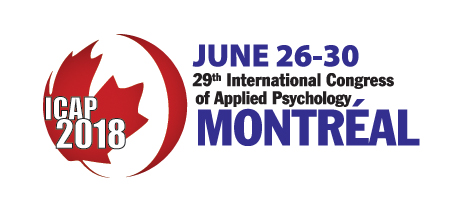2018 Pre-Congress Workshop 4: Advanced Skills in Mindfulness-based Interventions: Navigating the Ethics in and of Mindfulness
Jun 25, 2018 09:00AM
Palais des congrès de Montréal

| Presented by: | Lynette Monteiro, Frank Musten |
| Sponsored by: | Clinical Psychology Counselling Psychology |
| Continuing Education Credits: | 6 |
| Notes: |
- |
| Cost: |
CPA Members: $345.00 + GST + QST Non-Members: $425.00 + GST + QST CPA/IAAP Student Affiliates: $230.00 + GST + QST
Click here to download the country list |
| Duration: | Full Day (9:00 – 16:30) |
| Target Audience: | Clinicians, counsellors, spiritual counsellors, graduate students, and trauma counsellors |
| Skill/Difficulty Level: | Intermediate Level |
|
Workshop Description: In Buddhist teachings, suffering arises through avoidance of painful experiences and because of incongruences between stated and lived values. While secular mindfulness approaches focus on the experiential process to reduce suffering, practicing values-congruent actions is also necessary to cultivate healthy relationships with self and others. This workshop examines clinical implications of ethics that are intrinsic in mindfulness practices and the ethics of applying mindfulness approaches in specific settings. By examining the ethics inherent in mindfulness, clinicians can help clients explore their needs, the values that guide their life and the incongruences between their expressed values and actions. The ethics of mindfulness explores applications of mindfulness practices in settings that may create additional values-incongruence. Both ethical aspects require clinicians to be familiar with core elements that inform mindfulness approaches, awareness of the clinician’s subtle values in the therapeutic setting, and the need for caution when adapting mindfulness approaches to the requirements of specific settings. Holding this space skillfully as the client clarifies their relationship with self and others can result in a deeper and more sustained transformation. The foundational elements of mindfulness (body, emotions, sensations, and thinking) will be examined as an integrated model of mindfulness-based interventions (MBIs). Using this framework, three important elements of mindfulness will be practiced: the inquiry process, behavioural practices of values-based mindfulness (Five Skillful Habits), and informed adaptations of mindfulness practices for specific client needs (trauma, work stress). Experiential and interactive exercises will be practiced, enhancing clinicians’ mindfulness skills and cultivating self-inquiry skills that support their mindfulness approaches. |
|
|
Learning Outcomes:
|
|
